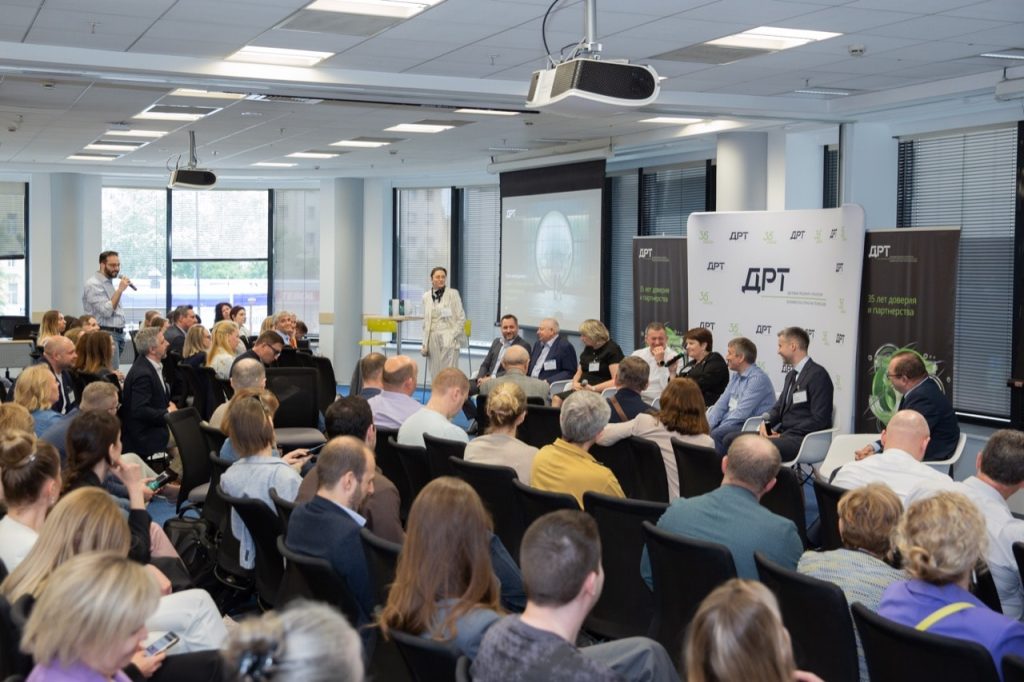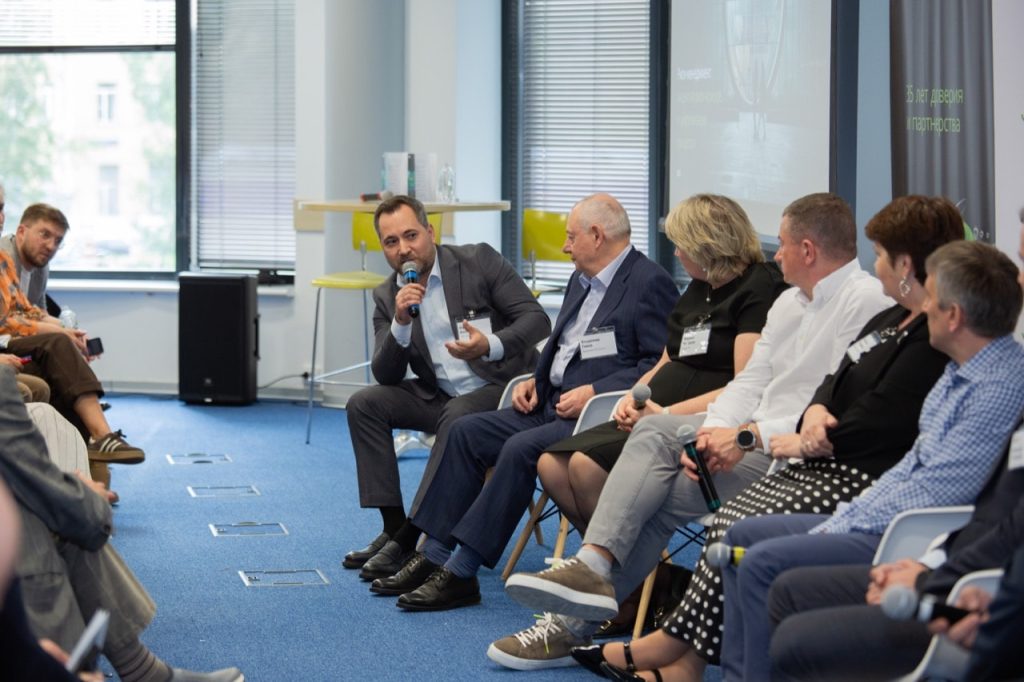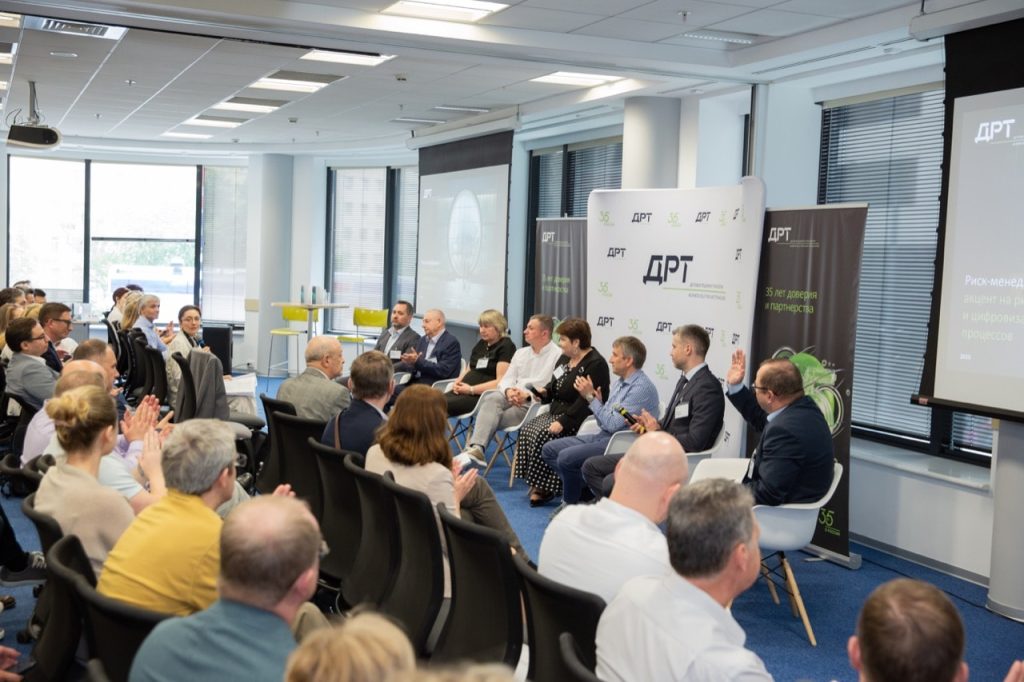The results of the seminar at JSC “Business Solutions and Technologies” (DRT)



On June 3, 2025, an eventful seminar “Risk Management: emphasis on risk culture and digitalization of processes” was held in the cozy office of the DRT on White Square with the support and participation of RusRisk. The participants exchanged views on the issues of assessing the maturity and degree of digitalization of risk management in Russian companies. The event brought together leading industry experts, representatives of the business community, professional organizations and the financial sector interested in improving the effectiveness of risk management systems.
The event was opened by Ekaterina Trofimova, a member of the Board of the DRT, and Victor Vereshchagin, President of the Russian Society for Risk Management (RusRisk). The Head of the Association expressed gratitude to his colleagues from the DRT company for the opportunity to participate in the study of the maturity of risk management in Russia and stressed that the figures and conclusions obtained raise serious thoughts about the future of the industry.
Irina Burochkina, Manager of the DRT Corporate Governance and Strategy Group, presented the results of a study assessing the maturity of risk management systems in Russian companies, noting non-obvious trends and worrying factors.
Mikhail Sledkov, Director of the DRT Risk Management, Internal Control and Audit Automation Group, shared the results of a study on the degree of digitalization of risk management and internal control processes in Russia.
The moderator of the panel discussion was Irina Andropova, a member of the Board of RUSRISK. Irina suggested discussing the trends in changing the attitude of boards of directors to risk management with the first question. Vladimir Gamza, Chairman of the Council for Financial, Industrial and Investment Policy, member of the Board of the Russian Chamber of Commerce and Industry, identified two factors hindering the development of risk management: difficulties in the perception of this area by members of the boards of directors and high uncertainty in the Russian economy: “The level of uncertainty forces us to make quick decisions. That’s the main problem.”
Alexander Shitov, a member of the Board of Directors of Sovcombank PJSC, recalled the importance of increasing the risk culture in the company.: “I believe that, in general, the level of risk culture in companies is measured by how often the word “risk” is mentioned during the weekly operational activities of CEOs, CEOs, and CFOs.
Natalia Loginova, Director of the Issuer Relations Department at the Moscow Stock Exchange, drew attention to the risks of public companies and the problems of young companies: “We notice the lack of a real system of collegial decision-making in young companies. There are councils, there are committees, there is a board. One person makes the decision anyway.” Also, according to the expert, information risks are greatly underestimated.
Marina Chekurova, CEO and Chairman of the Board of the rating agency Expert RA JSC, noted the reduction of risk management structures in companies after 2022 and named the reason for this trend: “Risks do not earn money.”
Answering the moderator’s question about the applicability of various risk assessment methods, Andrey Murashkin, Risk Director at X5 Group, drew the audience’s attention to risks that are difficult to quantify: “The simplest example is food safety. From the financial point of view, the poisoning case is not such a terrible event for the group. But from the point of view of reputation, from the point of view of potential criminal prosecution, the story is very unpleasant. This risk will always be at our top.”
The discussion also touched upon the use of modern technologies and artificial intelligence (AI) in risk management. Yuri Kostenko, Risk Director at AFK Sistema, commented on the possibility of their full-fledged use in routine activities or analytical work: “It can be useful for analyzing and systematizing big data to reduce your time and as an AI assistant, but I don’t see widespread use in the application aspect yet.”
The discussion on the issues raised at the panel session took place in a lively format. The participants concluded that many companies underestimate the risks of cybersecurity. It was also emphasized that the use of AI models increases the risks of fraud.
Despite the different perspectives on the use of AI, the seminar participants were unanimous on the need to draw attention to risk management in business against the background of economic instability in Russia. To increase the effectiveness of risk management, it is important to demonstrate the value of the risk management function and its contribution to strategic decision-making. In conclusion, the experts expressed their ideas on priority areas in the development of risk management: cybersecurity, risk culture, strategy.
Victor Vereshchagin invited his colleagues to continue the discussion at the RusRisk forum, which will be held on September 4-5 in Sochi.